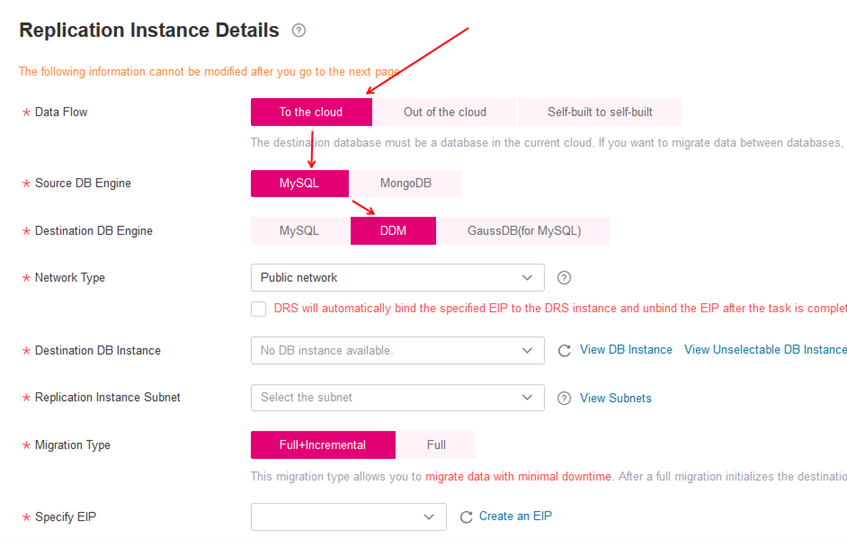As part of the extension of current supported database engines, Data Replication Service supports Migration Data from RDS for MySQL into Distributed Database Middleware
Supported databases:
DRS supports now Migrating Data from RDS for MySQL to DDM
Source DB | Destination DB |
|
|

Constrains:
Before data migration, you need to stop your workloads to ensure data integrity.
The new RDS for MySQL instance must be of the same version as the source RDS for MySQL instance.
Type | Restrictions |
Restrictions on the source database |
|
Restrictions on usage | General
Full migration
Incremental migration
Stopping a task
|
Other restrictions |
|
Further information can be found in the Data Replication Service(DRS) area of the Help Center.